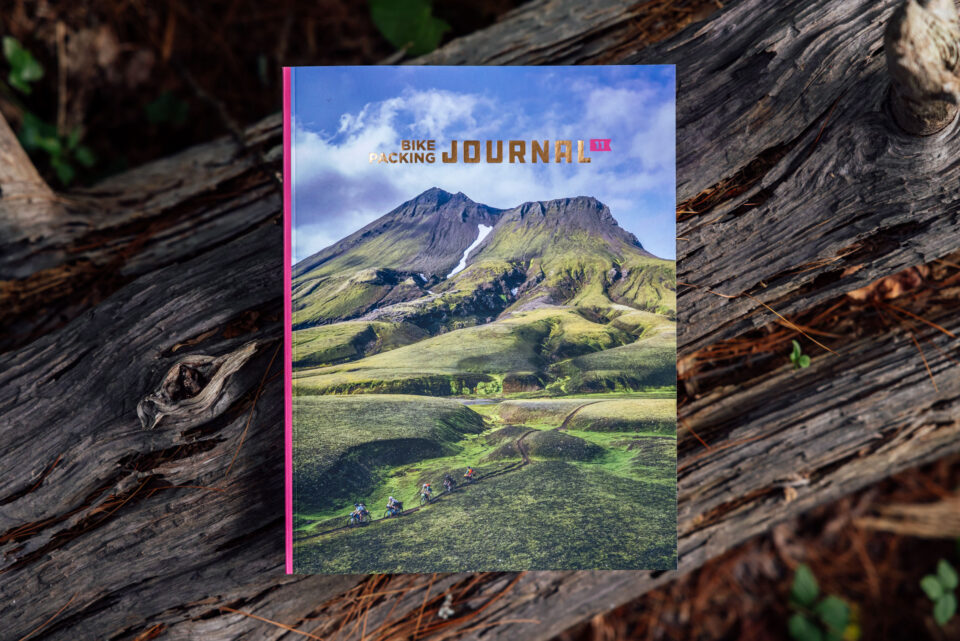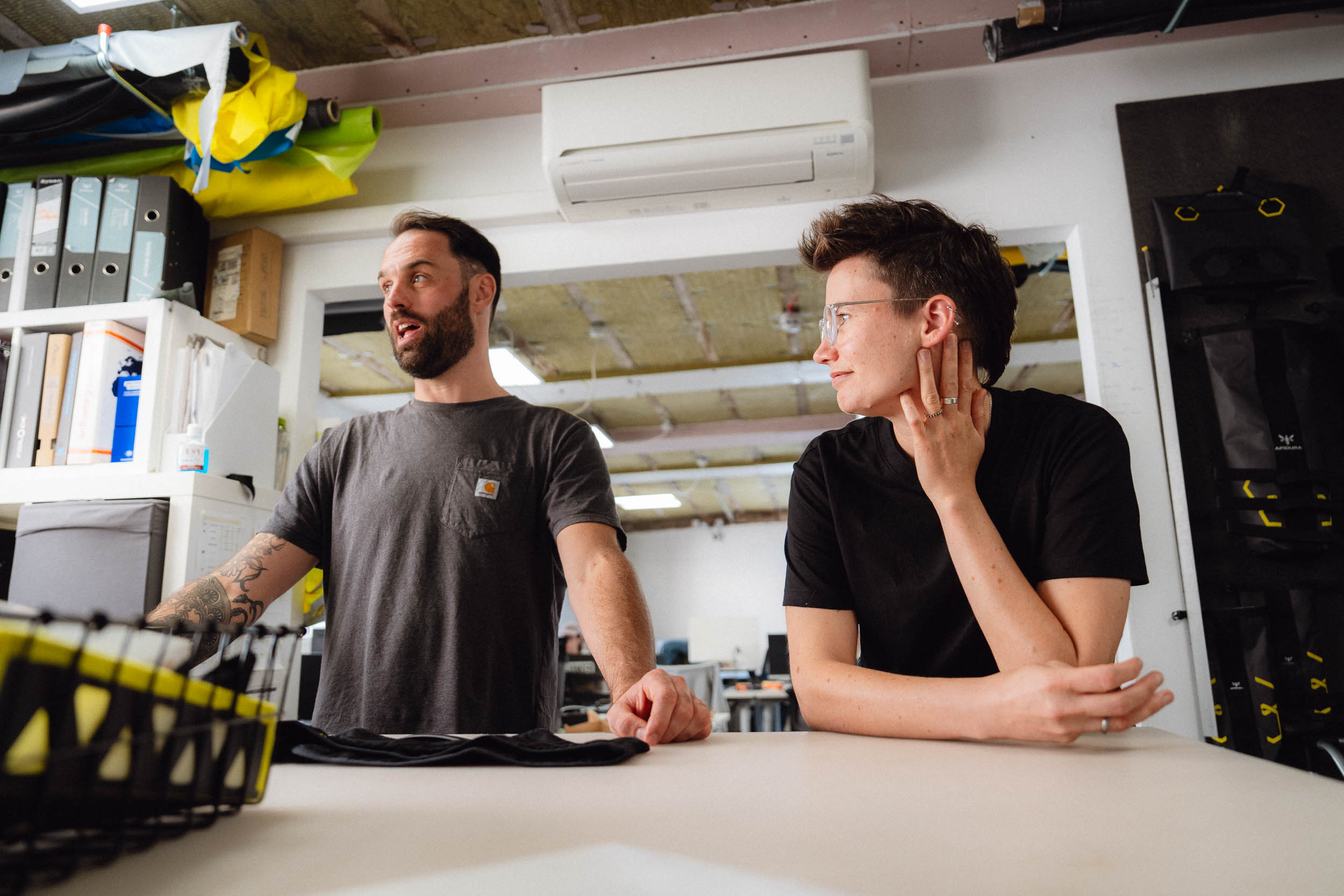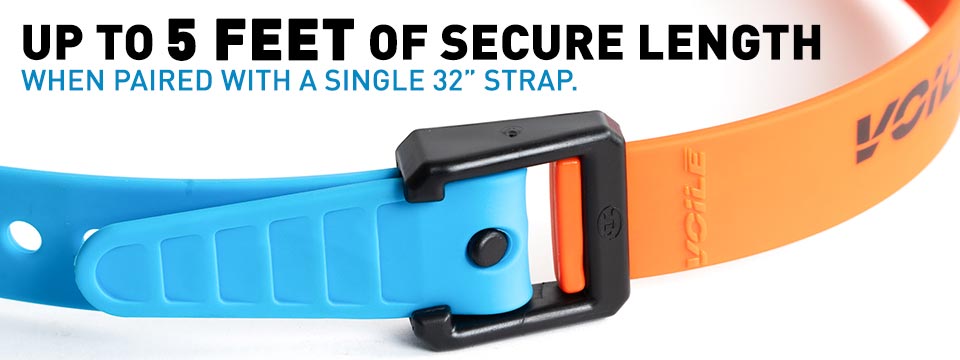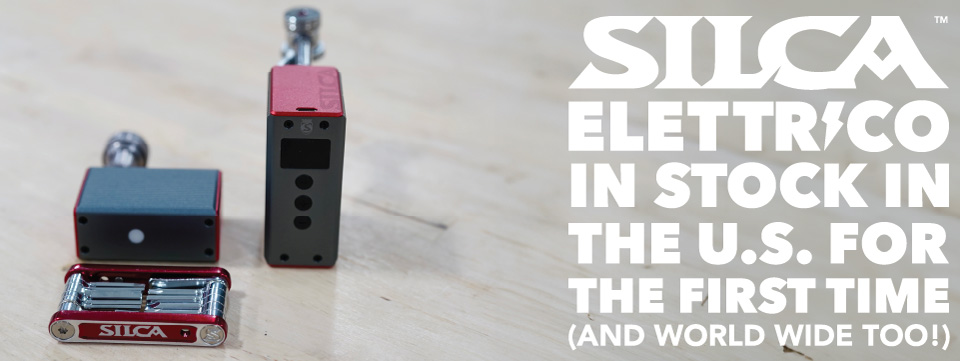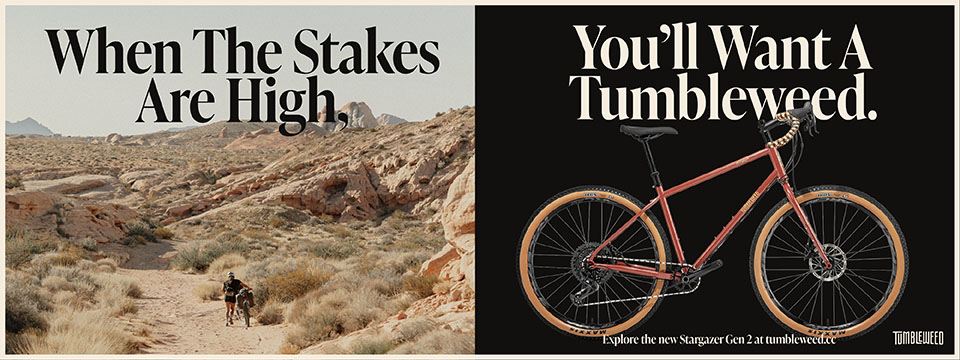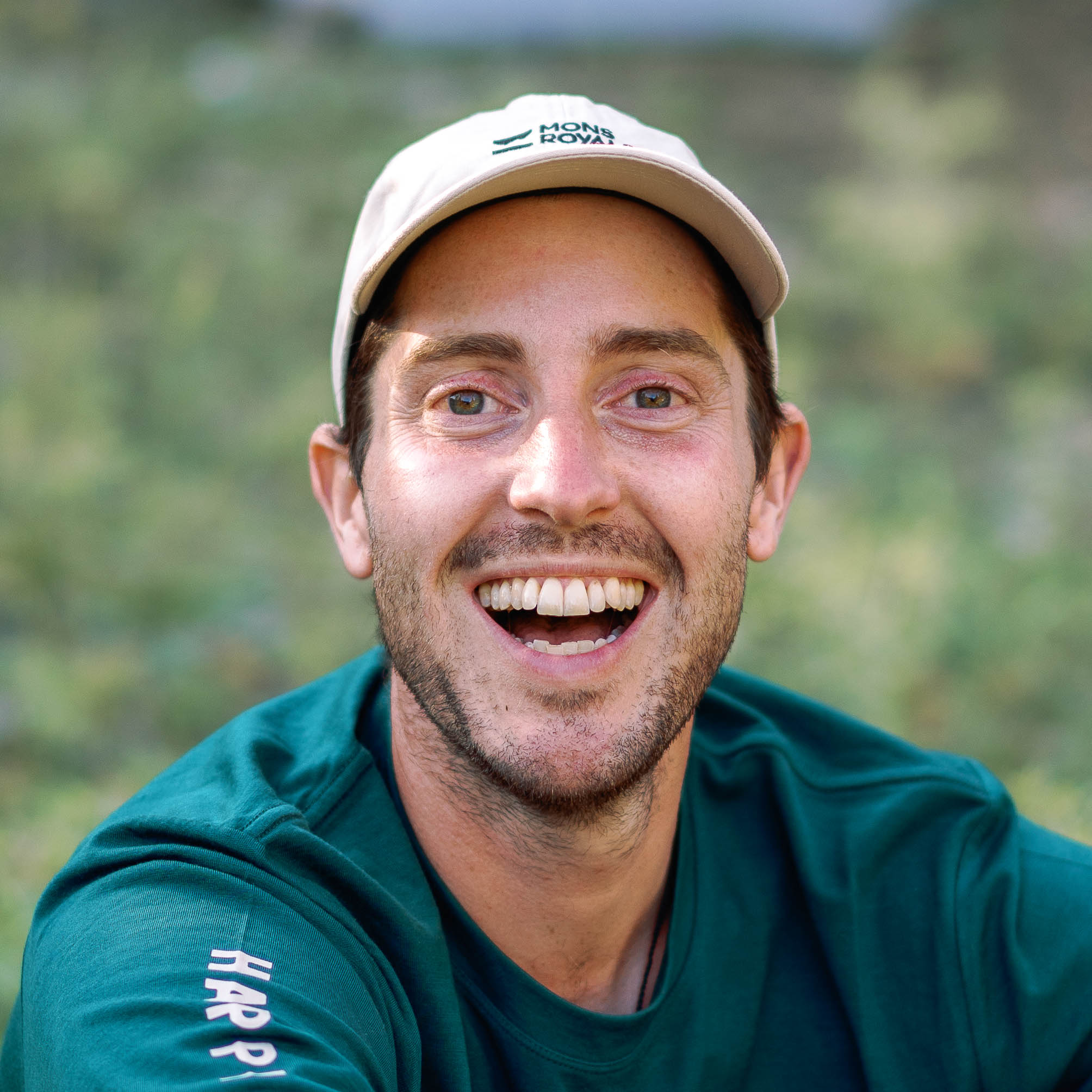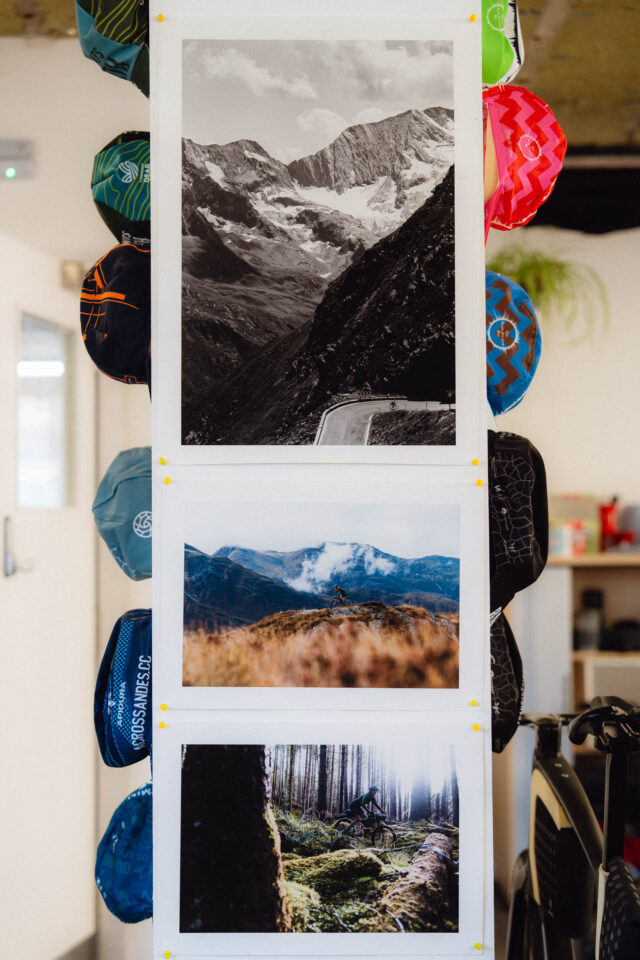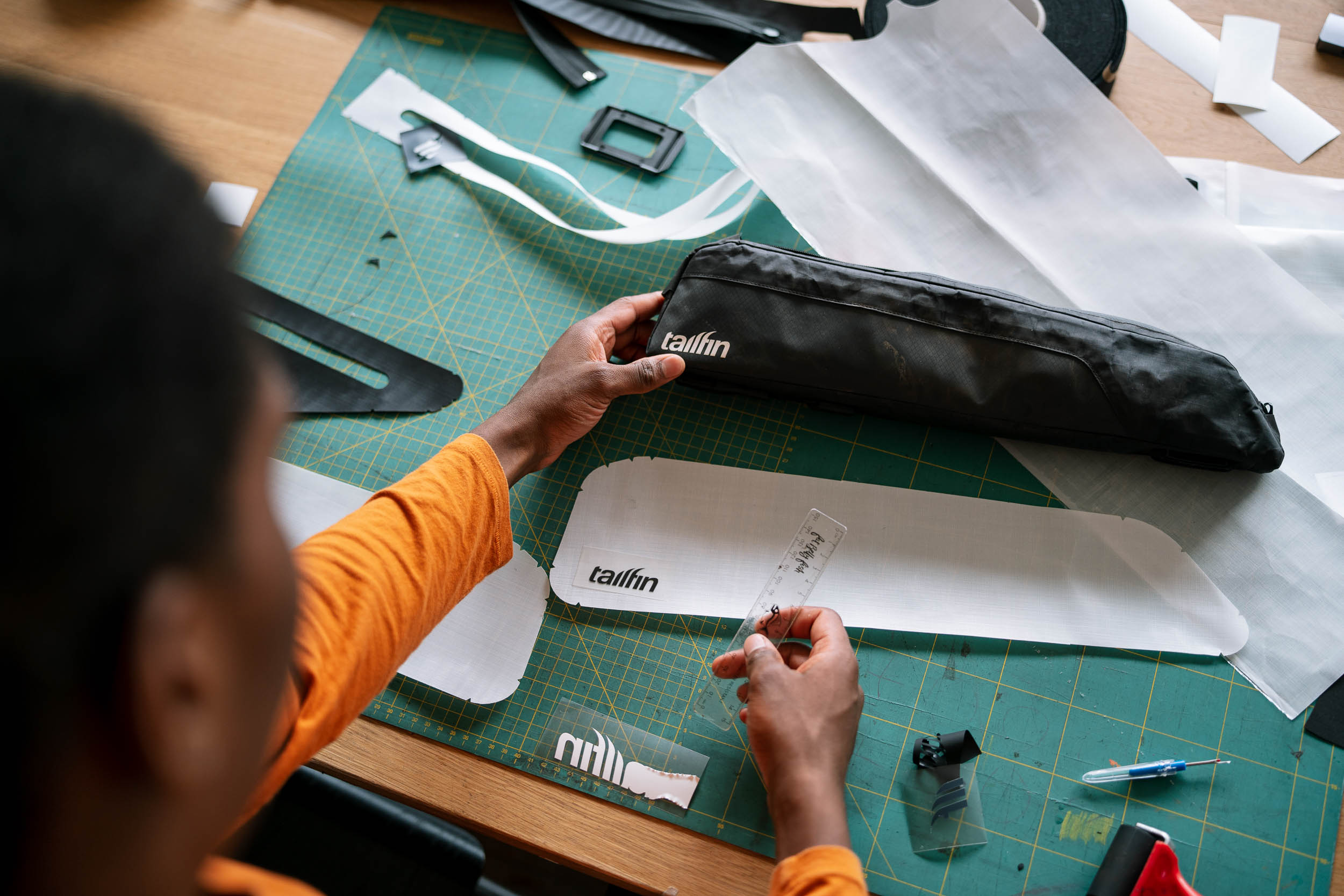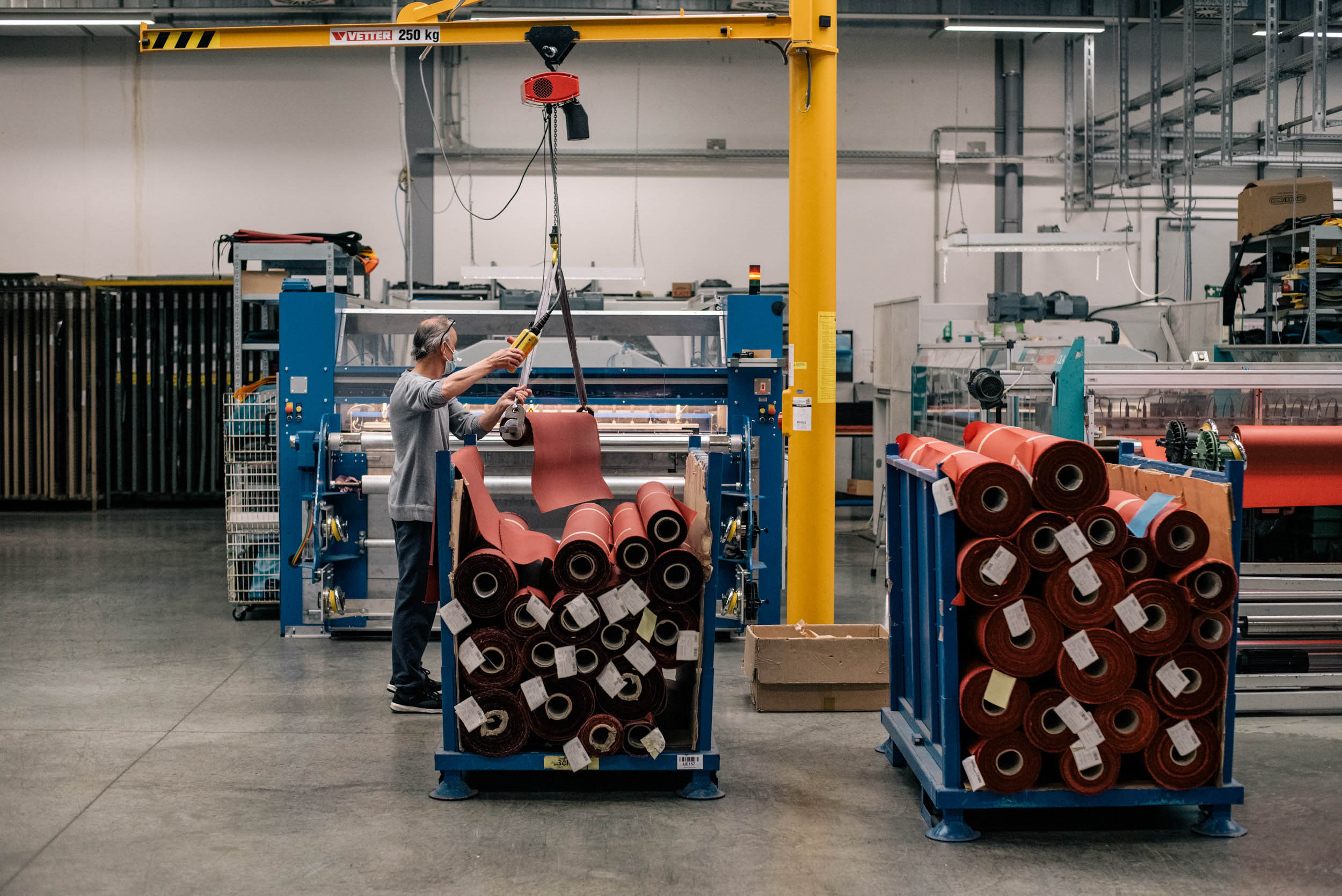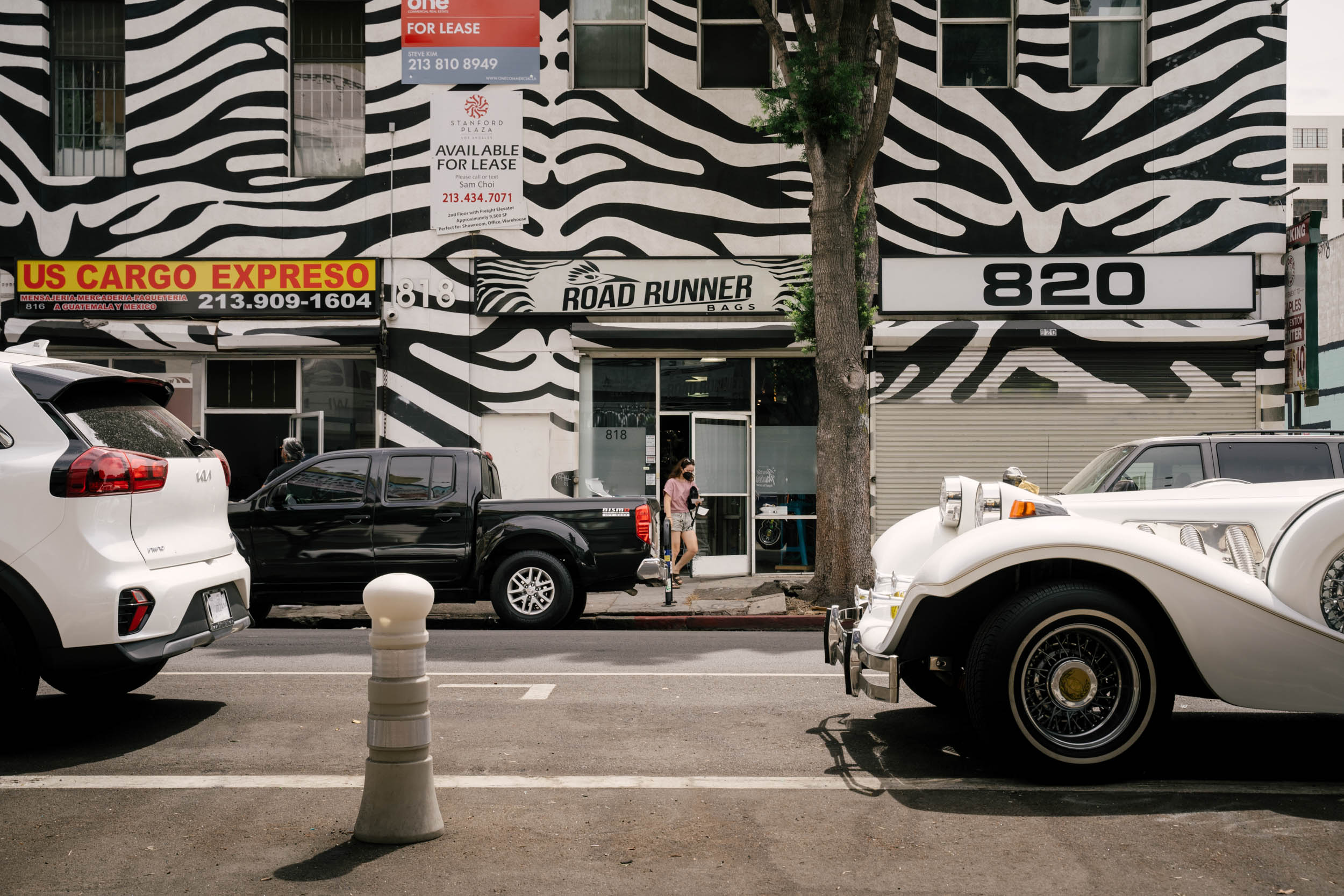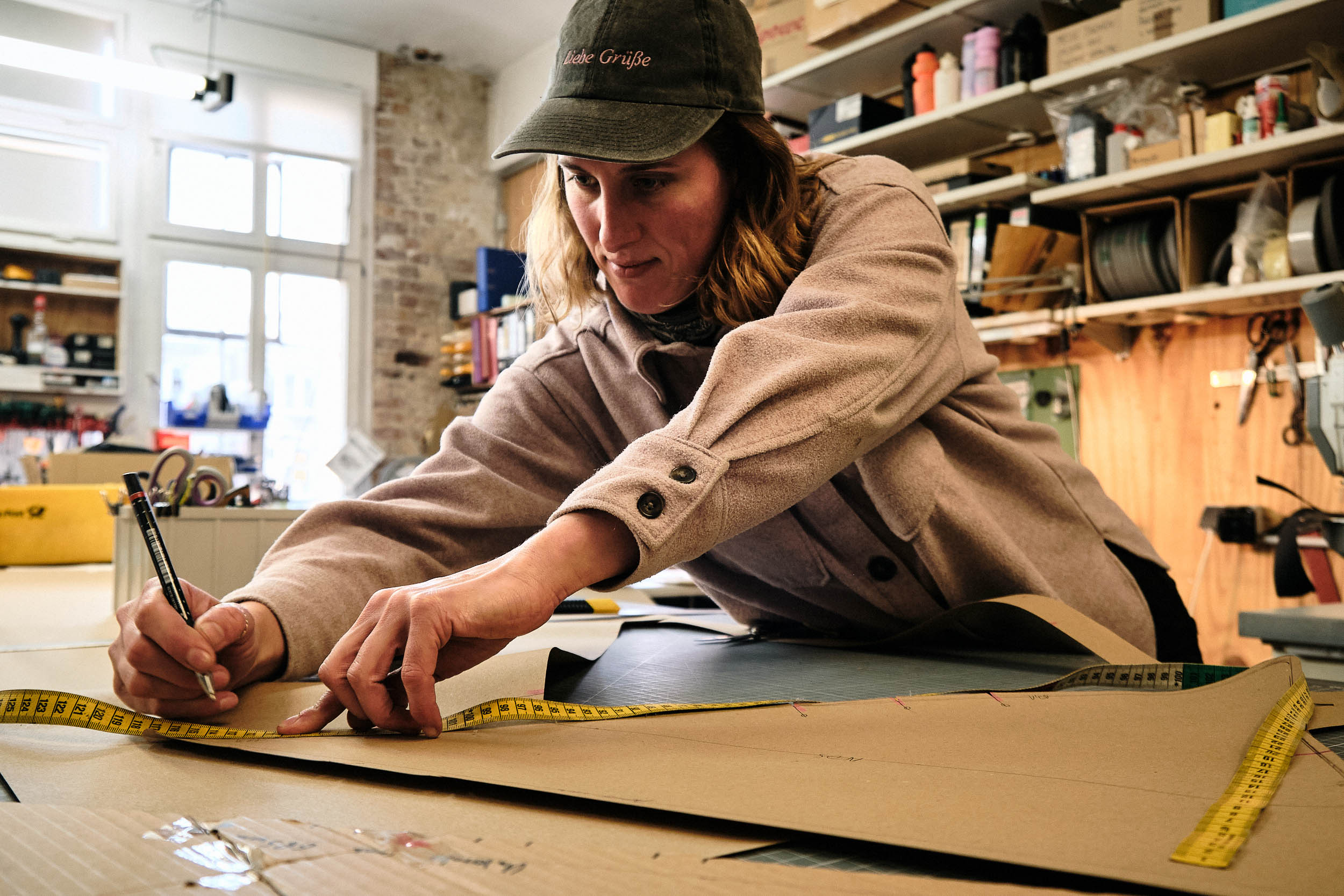Inside Apidura: Conscious Consumption
In our latest Field Trip, Sam Rice and Bec Norman go behind the scenes at Apidura in London. From its Tour Divide origins to becoming B Corp certified, Apidura has helped revolutionize sustainable bikepacking gear. Join Sam and Bec as they explore Apidura’s commitment to longevity, dive into their innovative Revive program, and uncover how they’re reshaping industry standards…
PUBLISHED Oct 9, 2024
With additional photos by Bec Norman
The waters of Camden Lock ripple softly with reflected street art, thrift stores bustle with eclectic energy, and collectors dig for vinyl gold in record stores. It’s busy and chaotic and alive. It’s London. We pedal along the high street, turn down a laneway, and the GPS beeps us to a halt. In front of us, a turquoise, pink, and bright yellow building stands sentinel, multi-coloured bunting flags waft in the wind, and wooden picnic benches bake in the sun.
We’re here to meet Apidura, a brand that has been producing industry-leading bikepacking bags for more than a decade. Their stripped-back offerings don’t rely on the latest trends or fads. They don’t offer sales or seasons, colourways or discounts, giveaways or merch. They focus instead on evergreen designs, continuous incremental improvement, and the promotion of a repair not replace culture.

Intrigued by their sustainability promises, B Corp accreditation, and grass-roots history, Bec and I visited their London HQ to delve a little deeper. On the day, we met Ian Carter, head of brand and marketing, and several members of the broader design team to learn more.
Born from racing: An origin story
“Coffee first, then we can jump into the day,” Ian says as he grabs his bag and ushers us towards his favorite coffee spot. He’s wearing shorts, a grey Carhartt tee, and a less-than-box-fresh pair of Vans. He speaks with the excitement of someone always on the verge of sharing their favorite story, his hands dancing through the air as expressively as his words. We sit, sipping oat milk flat whites on flimsy wooden chairs, sweating in the rare London sunshine. Then, when we’re all sufficiently caffeinated, the conversation turns to Apidura’s origin story.
The idea for Apidura started in 2011 when founder Tori Fahey prepared to race the Tour Divide. With years of traditional bike touring under her belt—across Africa, South America, China, and Central Asia—Tori was confident in her riding ability. But her journeys were always weighed down by conventional racks and heavy panniers. The Tour Divide, with its demanding terrain and need for extended riding periods, called for a different approach.

Ian pauses, taking a sip of coffee. The oat milk clings to his moustache. “So Tori decided to ditch the rack and panniers, deciding to go rackless for the first time.” He wipes the milk from his top lip, smiles, and continues. “And with a rackless bag setup, she was able to ride farther, faster, and more comfortably than ever before.” She was hooked and decided she wanted to share this revelation with other cyclists.
At the time, though, bikepacking was still in its infancy as a sport. The production of specialised equipment was largely a cottage industry, plagued by long lead times and limited to basic cut-and-sew techniques. Faced with this gap in the market, Tori did what any cyclist with a background in economics and a penchant for problem-solving would do: she decided to create the solution herself.
She looked around at the gear she used in other activities, such as skiing and hiking, and thought about what riders really needed from their bags in races like the Tour Divide. She tested early ideas, iterated on designs, and began reaching out to manufacturing partners, keen to leverage their advanced cutting and fabrication skills. New fabrics were tested and novel construction techniques were tried.

Ian’s eyes light up, the excitement evident in his voice. “Then, in 2015, Apidura unveiled the world’s first fully waterproof bikepacking bag system.” He says, “Our unique, radio frequency (RF) welded pack design was unlike anything in the market at the time and set a new standard in terms of what riders could expect from their equipment.” Manufacturing using these advanced technologies not only allowed Apidura to create products that were better than the competition but better for the planet too.
A Better Business for a Better Planet
Coffee over, we stroll back to the office and climb the painted yellow stairs. Light floods through the wide-open windows. Sample packs and paper templates cling to the bare white walls. In the hallway, Ulrich Bartholmoes’ 2023 Tour Divide-winning kit is on display in all its battered and bruised glory. Bits of fibreglass insulation cling to the exposed ceiling, and everyone’s desk chairs are mismatched. The space is not fancy. There’s no plush kitchen, forced fun bean bags, or Nespresso machines. It’s normal. Unpretentious. Real.
This no-frills approach to their workspace mirrors Apidura’s broader philosophy as a company more focused on impact than image. It’s an ethos that permeates every aspect of their business, especially their commitment to sustainability.
Since 2013, the team at Apidura have been acutely aware that the act of making physical goods has an undeniable impact on the environment. “A decade ago, the conversation around sustainability was still in its infancy. There was widespread recognition regarding the need for better environmental practices, and customer sentiment was certainly heading in the right direction. But on the ground, there was disappointingly little by way of environmentally progressive suppliers in the traditional supply chain, our own included,” Ian tells us as he leads us into the R&D room and introduces Josie, Apidura’s ambassador and community manager.

The lack of genuine alternatives at the manufacturing level presented a significant challenge. However, it also served as the catalyst to drive the brand’s sustainability efforts forwards. “Take our original fabric, for example,” Josie joins the conversation. “Instead of accepting the status quo at the time, which was VX21 (a DWR-coated sailcloth material that contains harmful PFCs/PFAs plastics) we educated, challenged, and ultimately pushed suppliers to create something brand new.” Ian nods and then chimes in energetically, “It wasn’t easy. We had to ask some hard questions and push against established practices. But in 2015, that effort paid off when we pioneered a non-toxic TPU coating as the first, genuine alternative to DWR in the bikepacking industry.”
A decade later, many things have changed in the business. They’ve grown their product range to include three collections (Backcountry, Expedition, and Racing), launched a range of hard goods including cargo cages and bottle cage adaptors, and collaborated with brands like MAAP and Rapha to bring custom designs to the market. The bags themselves continue to be manufactured and assembled by carefully selected partners in China, Vietnam, South Korea, Philippine, and Taiwan, whose ethos and practices align with Apidura’s broader sustainability goals, an approach also taken by other technically focussed brands, such as Tailfin and Revelate.
“Our goal has always been to create the best products possible while doing the least possible harm to the planet,” Ian tells us. “That’s why in 2022, we pursued and achieved B Corp certification.” He looks at Josie and smiles, a sense of pride shared between them. “Getting B Corp certified was a huge milestone for us. The process scrutinized every aspect of our business, from our supply chain and input materials to our employee benefits and charitable giving. But what’s really exciting is that it’s pushing us to do even better. We’re now working towards our recertification in 2025, setting ambitious goals to further reduce our environmental impact, improve our supply chain traceability, and expand our “Revive” program initiative.”

As a result of their ongoing sustainability efforts and B Corp commitments, Apidura has been 100% PFA-free across all materials and production since 2021. They’ve converted all their product packaging to recyclable materials or recycled inputs and published the full details of CO2e impact for every product on their website to help consumers make more informed choices.
Diving into this CO2e data calls into focus the brand’s approach to maximising product longevity. Although their bags are manufactured overseas, the overall impact of shipping is a minimal amount of a product’s overall impact (between 1 and 5%), the vast majority of which comes from the creation of the product itself, with up to 75% of CO2e impact attributed to raw material processing. By focussing on product lifespan and minimising fabric wastage through optimising cut patterns, Apidura is getting to the core of where impact begins.
Herein lies one of the complexities around sustainability and supply chains, where raw material origins and the manufacture of everything from buckles to velcro is a much more complex story than the final “Made in” label on a product suggests. With a focus on gaining full supply chain transparency, going beyond a supplier list, and mapping who supplies the suppliers, Apidura is investing a large amount of effort into credible sustainability efforts, which is impressive for a company with fewer than 30 employees.
Revive: A different kind of marketplace
The bikepacking bags we use can be subjected to some pretty gnarly conditions. They’re often dragged through deserts, hauled up hiking paths, and trudged through death mud. This can lead to holes and tears after long adventures and years of use. Typically, the solution for most of us is purchasing new bags, leaving the old bags idle in a closet or garage gathering dust.

“On average, 82% of products classified by brands as ‘waste’ can actually be renewed and resold.” Kendra, Apidura’s impact & circularity manager tells us as she stirs a cup of strong breakfast tea. “Our goal is to keep our packs in circulation and on the road for as long as possible,” she continues. To achieve this, Apidura has prioritised the repairability of their products since day one: offering both an extensive online resource for common care and repair topics and a dedicated in-house repair service for more complex issues.
This repair-first approach isn’t just about fixing bags; it’s about changing consumer mindsets and reducing environmental impact. “We want to normalise the idea of repair over replace,” Ian adds, picking up a newly refurbished seatpack. We’re acutely aware that our products are subject to intense usage. But instead of seeing wear and tear as an end-of-life scenario, we view it as an opportunity to extend a product’s journey.”
Far from a novelty, the results of Apidura’s repair program speak for themselves: across a total of 1,423 repairs to date, the programme has saved 7.7 tonnes of carbon dioxide equivalents (CO2e). For the team, each repair represents a small victory. One less bag in a landfill and one more adventure continued.
Apidura’s commitment to sustainability doesn’t stop at repairs, though. In 2020, they launched their Revive marketplace, an innovative program that refurbishes and resells used or sample gear, further reducing waste and promoting a circular economy in the cycling industry. Ian’s eyes light up as he describes the initiative in more detail, his passion buzzing around the room. “We created Revive as a way to return purpose to idle packs and create an avenue to encourage customers to engage with sustainable practices.” He tells us, a sense of pride washing over him.

What started as a small pilot quickly grew. Positive community feedback led Apidura to invest in expanding the program, including launching a dedicated website in 2021. “Revive recycles and resells packs from three main sources in our supply chain: samples from our product development process, refurbished packs used for testing by ambassadors, and repaired packs that have been professionally restored to meet our high-quality standards,” Ian explains.
“The cool thing about Revive is that each pack has a unique story,” Kendra adds, showing us a bag that’s ready to be added to the marketplace. “One year, Sofiane Sehili donated the Backcountry Full Frame Pack that had been on his bike through the Tour Divide, Hope 1000, and his wins at the Inca Divide and Atlas Mountain Race. Now, it’s ready for new adventures with a different rider.”
Hearing the team talk about the Revive program firsthand is powerful. Their passion and unwavering commitment to promote a model of thoughtful, need-based consumption goes well beyond marketing gimmicks and industry buzzwords. For Apidura, creating more sustainable products that stay in circulation longer isn’t simply a choice. It’s a fundamental part of their business philosophy and a testament to their vision for a more conscious approach to consumption in the cycling industry.
Final Thoughts
As we wrap up our visit to Apidura, it’s clear that their approach to business is as much about shaping a sustainable future as it is about creating top-notch bikepacking gear. From Tori’s makeshift bags on the Tour Divide to their B Corp certification in 2022, Apidura’s journey feels like a testament to the power of sticking to your guns. In a world that feels perpetually on the edge of a new season, sale, or trend, they remind us of the value in taking the long view, in creating gear that lasts, and in nurturing a community that gives a damn about its impact.

Our time with the team hasn’t just made us rethink our current bikepacking setup; it’s sparked a broader reflection on our everyday choices as consumers. Because that’s ultimately what it boils down to. It’s not just about the bags we carry on our bikes, the gear we choose, or whether we fly or train to new countries. It’s about the choices we make as consumers and the impact those choices have.
A huge thanks to Ian, Josie, Kendra, and the rest of the team for having us. Good luck with your upcoming B Corp recertification, and keep up the great work.
Further Reading
Make sure to dig into these related articles for more info...
Please keep the conversation civil, constructive, and inclusive, or your comment will be removed.



